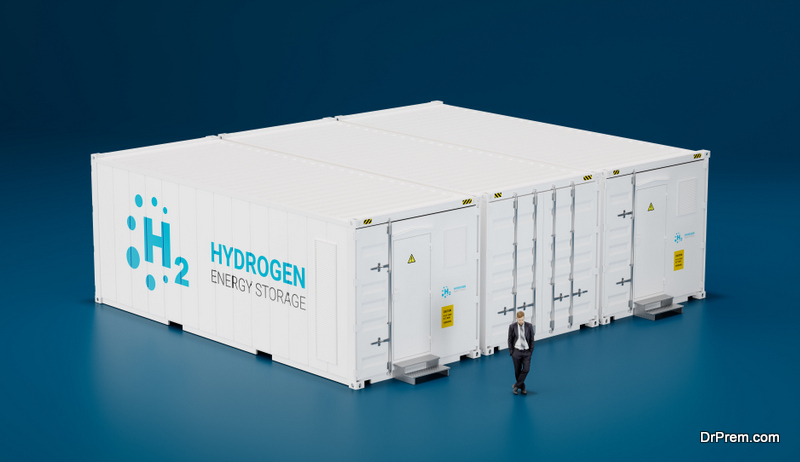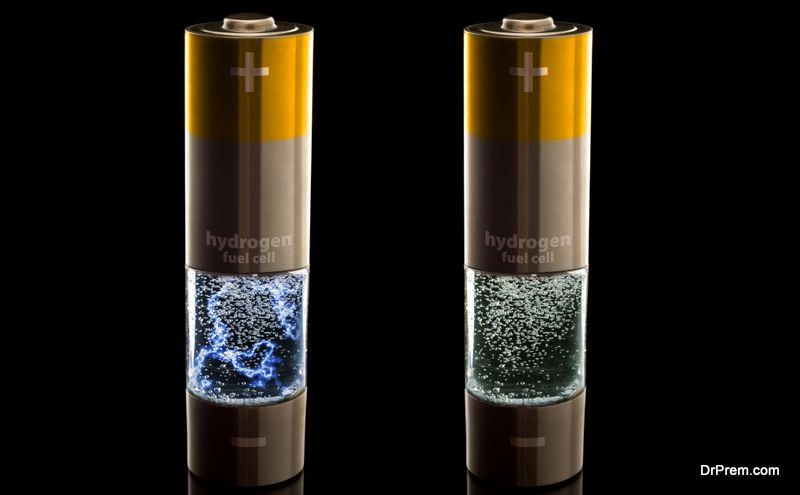Fossil fuels have been the major culprit in emissions causing global warming. Besides, these fuels are limited and are bound to run out some time or the other. Apart from wind, solar and geothermal energies, which are being developed the most as alternative energy, there have been advances made in some other green technologies too, which will have reduced emissions. One such energy is Hydrogen fuel cells, which seems to have a promising future. Let’s take a closer look at the advantages and disadvantages of hydrogen fuel:
The advantages and disadvantages of hydrogen economy
 Hydrogen is now being used in many sectors. It is used to power vehicles such as commercial buses using only Hydrogen fuelled cells, as well as a combination of hydrogen and other fuels in internal combustion engine. It is used to dye fabrics, welding metals, making electronics, fertilizers and plastics. When there is an abundance of this clean energy, it can be used in many other sectors. But there are advantages and disadvantages of hydrogen economy, the majority of which are listed below:
Hydrogen is now being used in many sectors. It is used to power vehicles such as commercial buses using only Hydrogen fuelled cells, as well as a combination of hydrogen and other fuels in internal combustion engine. It is used to dye fabrics, welding metals, making electronics, fertilizers and plastics. When there is an abundance of this clean energy, it can be used in many other sectors. But there are advantages and disadvantages of hydrogen economy, the majority of which are listed below:
The advantages
1. Reduced pollution
Hydrogen fuel cells produce energy which is completely green. It is one of the major reasons why this energy is an energy for the future, if we want to reduce air emissions and thus prevent further global warming. Hydrogen fuel cell electricity can be used as vehicle fuel, as well as heat source for umpteen uses. As water is the only byproduct, and we don’t have to worry about environmental danger, such as oil spills when with hydrogen fuel.
One of the major benefits of hydrogen economy is if it is produced by the process of electrolysis, then, there are no greenhouse gases released into the atmosphere. There process is completely eco-friendly, as the hydrogen produced through electrolysis, recombines combines with oxygen and creates energy and water inside the fuel cell. Thus, hydrogen can be a very good alternative to fossil fuels.
2. Greater economic independence
The world economy is now dictated by the fluctuating oil prices which are decided by a few countries where oil is abundant and who are the major suppliers. Prices of all commodities have increased over the years due to the increasing prices of oil. While discussing about the Hydrogen economy advantages and disadvantages, we can point out the advantage of being economically independent as hydrogen can be produced in our own countries.
Hydrogen can be generated from many sources. It can be generated at a central facility and then be distributed to many places, or it can be generated at the site of use. Methane, biomass, water, coal and gasoline can be used to produce hydrogen, but the most eco-friendly option is production from water.
In fact, people can manufacture it at home, as the technology is very simple. Hydrogen gas production requires only water and electricity, which is available everywhere.
3. Hydrogen generated from water is sustainable
 The whole process of generating hydrogen can be green, for example if solar or other renewable energy source is used to provide electricity to the electrolyzers to separate hydrogen from H2O. The use of water as well as renewable energy will provide freedom from fossil fuel at every stage. As heat and water are the byproducts of the process, then if a co-generator is set up, the waste energy can be utilized for heating purposes. Complete utilization of energy is one of the advantages, out of the advantages and disadvantages.
The whole process of generating hydrogen can be green, for example if solar or other renewable energy source is used to provide electricity to the electrolyzers to separate hydrogen from H2O. The use of water as well as renewable energy will provide freedom from fossil fuel at every stage. As heat and water are the byproducts of the process, then if a co-generator is set up, the waste energy can be utilized for heating purposes. Complete utilization of energy is one of the advantages, out of the advantages and disadvantages.
Currently, wind and tidal energy research has also gained momentum, which can be used to produce hydrogen gas. Small scale hydroelectric projects can be of use to produce hydrogen locally, for example, farms which have a natural water source can set up a small hydro facility and produce hydrogen electricity for their use.
4. Hydrogen produced from waste aluminium is beneficial for the environment
Apart from hydrogen being produced from water, it can also be produced from waste aluminium, as a Canadian company has recently shown. It would be one of the great benefits
Of Hydrogen economy, if hydrogen is produced from this method, as the alumina produced can be used to form aluminium again, and thus the process would form a full cycle.
Disadvantages of Hydrogen economy
1. Technological hurdles
 Hydrogen, in its gaseous form is tricky and bulky. After producing hydrogen, a leakproof method of storage and transport has to be worked out, for safety reasons. Hydrogen powered engines have to be leakproof too, to avoid accidents. As of now, NASA has developed special sensors which can detect leaks of the gas during the launch of space shuttles. These type of sensors have to be developed for automobiles too, so that the gas can be used safely.
Hydrogen, in its gaseous form is tricky and bulky. After producing hydrogen, a leakproof method of storage and transport has to be worked out, for safety reasons. Hydrogen powered engines have to be leakproof too, to avoid accidents. As of now, NASA has developed special sensors which can detect leaks of the gas during the launch of space shuttles. These type of sensors have to be developed for automobiles too, so that the gas can be used safely.
2. Cost factor
The energy cost to produce hydrogen by the electrolysis process is extremely high presently. The production cost of the gas is so high, that it outweighs the benefits and is proving to be a major barrier for this technology to advance. According to a study by expert on fuel cells, hydrogen economy would be a wasteful economy.
Though it has environmental advantages, the huge amount of electricity used to separate hydrogen, package it by liquefaction and compression. Moreover, if we even add to this the cost of distributing it to end users as well as take into account the energy lost in the entire process, it leaves only 25% of the energy for use. This imparts an extremely low value to the energy, making it suitable only for niche applications, such as used as fuel for space shuttles and submarines.
3. Dwindling resources will be used up
 Producing hydrogen from water and electricity might not be useful, as it requires a huge amount of water and electricity, and the reserves of both are dwindling. It might lead to political conflict too, if water is used up to produce electricity.
Producing hydrogen from water and electricity might not be useful, as it requires a huge amount of water and electricity, and the reserves of both are dwindling. It might lead to political conflict too, if water is used up to produce electricity.
4. It would compete with other green energy
Even when hydrogen is produced from green sources, it would ultimately be in competition with the same green energy which is used to produce it. Alternative energy carriers would have to be built, which again, does not make economic sense.
Final Words
However, all green technologies have been prohibitively expensive and have had their own advantages and disadvantages, but they are now economically viable to a great extent. Hydrogen produced with aluminium and other such processes may help to establish hydrogen economy as a major green economy worldwide.



